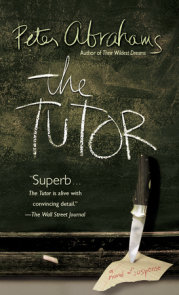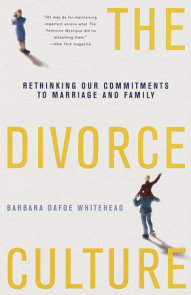READERS GUIDE
Questions and Topics for Discussion
INTRODUCTION
Los Angeles, l945: When Hosanna Clark, newly arrived from the farm fields of Texas, befriends Holocaust survivor Gilda Rosenstein, she opens the door to a new life for them both. Using Gilda’s knowledge of cosmetics and Hosanna’s energy and determination, they begin producing a line of lipsticks and lotions for black women. The two are more than partners: They are dear friends.
Then Gilda suddenly disappears, taking all the assets. Hosanna is doubly betrayed: financially ruined and emotionally bereft. When, years later, she passes away, her small cosmetics company dies with her. But Hosanna leaves behind a daughter steeped in her mother’s pain: Matriece is as smart and driven as her mother and savvy enough to recognize that white firms are competing not only for black consumer dollars but for black professional talent as well. When Gilda’s huge cosmetics conglomerate hires her to launch a line of black beauty products, Matriece takes on a mission to collect her mother’s debt.
What You Owe Me is a stunning account of the changes we have seen in white attitudes toward blacks, but it is also a sensitive look at what betrayal—of friendship, of love—does to us all. Ultimately, it is a moving book about healing. AsEmerge magazine acknowledged, “Campbell’s writings are a beacon of light, helping assuage the anger by tending our deepest wounds.”
ABOUT BEBE MOORE CAMPBELLBebe Moore Campbell is a bestselling author and a journalist. Her nonfiction work has appeared inThe New York Times, The Washington Post, Los Angeles Times, Ms., Essence, Black Enterprise,Ebony, Working Mother, USA Weekend, and Adweek, among other publications. She is also a regular contributor to National Public Radio.
Bebe Moore Campbell is the author of Brothers and Sisters, Singing in the Comeback Choir, Your Blues Ain’t Like Mine, and What You Owe Me.
Campbell was born and grew up in Philadelphia and graduated from the University of Pittsburgh, where she earned a bachelor of science degree in elementary education. She taught elementary and middle school for five years. She now lives in Los Angeles with her husband, Ellis Gordon, Jr., her daughter, the actress Maia Campbell, and a son, Ellis Gordon III.
DISCUSSION QUESTIONSWhat You Owe Me opens with the long-since passed away Hosanna proclaiming her unabated anger toward Gilda. She is “depending on Matriece to make things right.” Is it unreasonable for Hosanna to use Matriece to settle her score with Gilda?
Gilda and Hosanna have both been discriminated against because of race. Aside from ethnicity, how are they different? How does race work for Gilda and Hosanna, respectively?
How does Mooney make Hosanna aware of her beauty? What else does she learn from Mooney that she uses later in life?
In the beginning of the novel, Montgomery tells Matriece that he is content with what his father has bestowed upon him. How does his attitude change by the end of the novel? What are the catalysts for this change?
Staying true to one’s roots is a concern that haunts the characters of What You Owe Me. How does this issue inform the relationship between Asia and Matriece? What role does race play in Matriece and Blair’s friendship? How does it divide the two?
Guilt is an important theme in the novel. How is the “survivor’s guilt” that haunts Gilda similar to the guilt that causes Matriece to have visions of her mother?
Gilda is not the only character dealing with the legacy of the past. How does Sam attempt to forge a new life for himself after prison? Were you surprised when his relation to Asia was revealed? Does their new relationship suggest the possibility for reconciliation between Matriece and Gilda, and as a result, Hosanna and Gilda?
What You Owe Me brings up some interesting points about the definition of success. For example, Blair has a huge house but a dysfunctional family inhabits it, Matriece runs a company at 38 but is perpetually single, and Vonette has nurtured a tight-knit family but lacks professional accomplishment. Is any one of these women more successful than another? Why or why not?
Given Blair’s close personal connection to Tavares’s family, do you find it surprising that she would let Tavares get punished for false drug charges just to protect her own obviously guilty son? Is it wrong of her to put family over friends in this way? Do you think Bebe Moore Campbell implies that for whites, the integrity of the family unit takes precedence over cross-racial friendships? Or does this thesis crumble when Blair and Matriece eventually make amends?
Gilda and Hosanna know about the power of a positive self-image. To what extent do they believe that women who feel beautiful will be happier people? How does the evolution of Brown Sugar coincide with an evolution in the way blacks are seen by both whites and blacks? Why is it revolutionary for Hosanna to set out to show black women that they are beautiful according to their own standards?
Do you think that by selling the company to Matriece, Gilda finally settled her debt to Hosanna?
Ubiquitous in What You Owe Me are characters who resent their fathers for being absent in their formative years. How does this issue transcend race? How do the characters involved reconcile their differences with their fathers?
In addition to the image of blacks changing over the course of the novel, they have also moved from the blue-collar workers to the growing middle class. Using Matriece and Hosanna as examples, discuss how in the past 50 years, a rising number of blacks have transformed from members of the working class into an economic force to be catered to and sought out as employees.






















